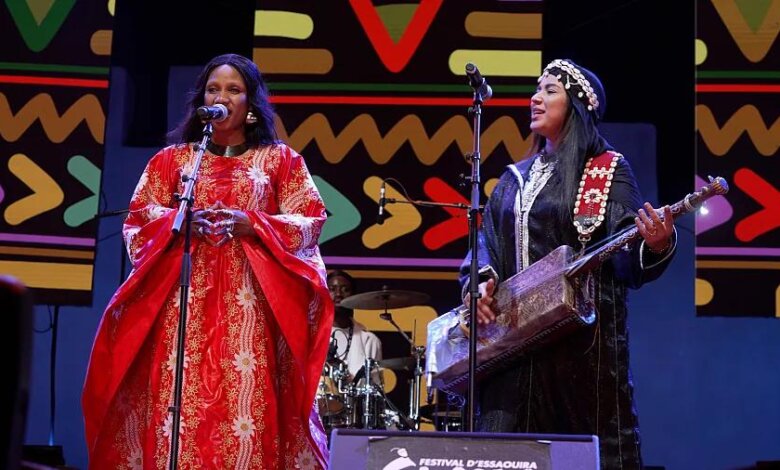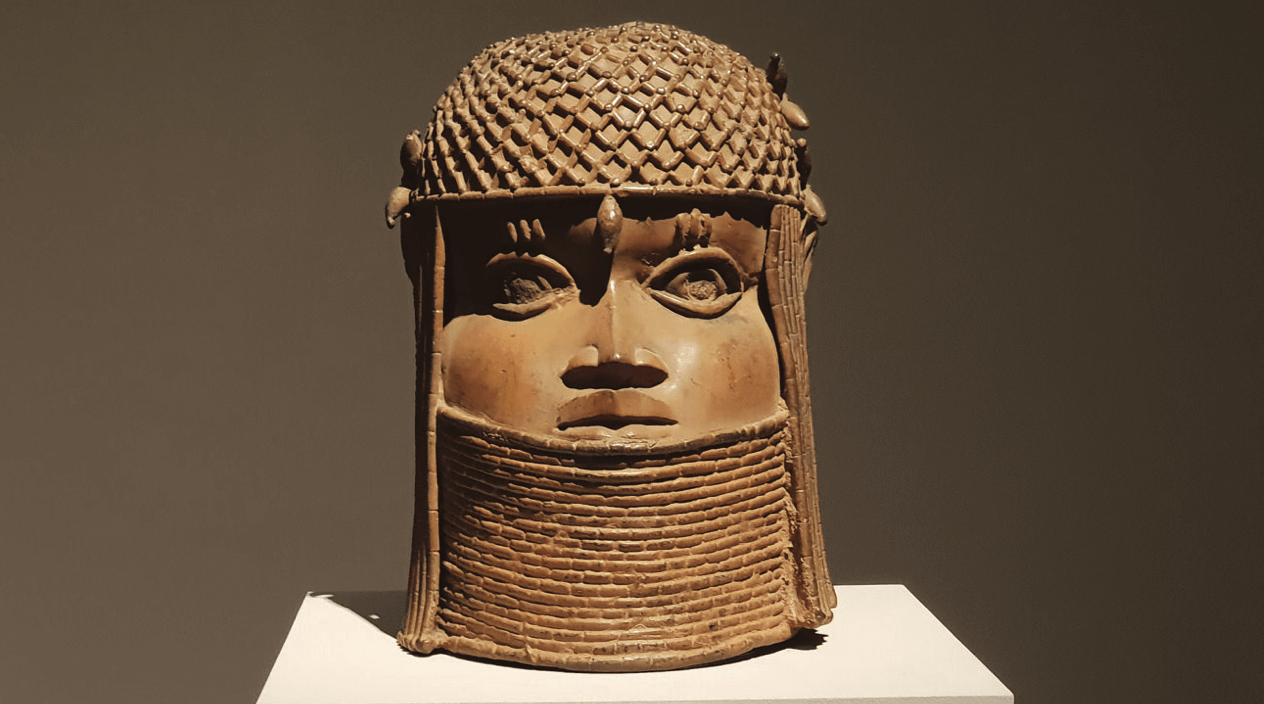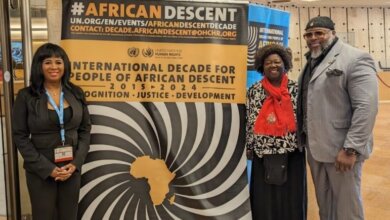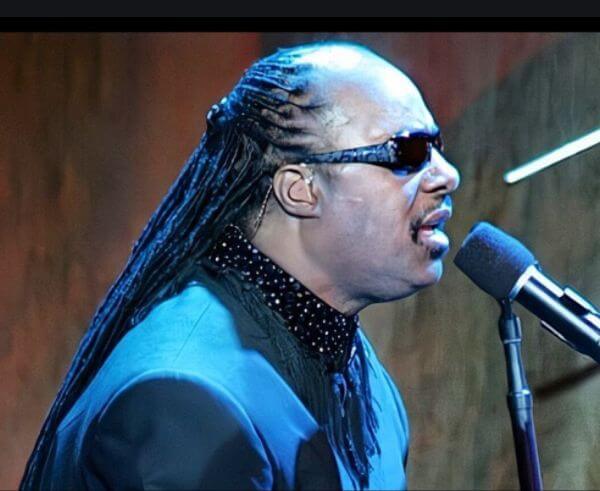Women take centre stage at 26th Gnaoua and World Music Festival

The 26th edition of the Gnaoua and World Music Festival was held in Essaouira, Morocco, with its traditional parade through the city’s historic Medina, a late 18th-century fortified town. But beyond the spectacle of music and movement, this year’s event marked a turning point, a growing number of women artists are stepping into a festival long dominated by men and reshaping the future of Gnaoua music.
Recognized by UNESCO in 2019 as part of the Intangible Cultural Heritage of Humanity, Gnaoua is both a musical genre and a spiritual tradition rooted in the cultural practices of formerly enslaved Sub-Saharan Africans brought to Morocco centuries ago.
This year’s edition held from June 19 to 21, 2025 blended music, dance, and ritual in deeply symbolic performances with women at the forefront. Leading the charge was Asmaa Hamzaoui, a trailblazing musician from Casablanca who, a decade ago, defied expectations by founding Bnat Timbouktou, the country’s first all-female Gnaoua group.
Born into a family of Gnaoua musicians, Hamzaoui has spent years challenging gender norms in a genre that, until recently, had little space for women performers.
“I come from this culture, it’s in my blood,” the 36-year-old said in an interview backstage after her opening performance. “At first, there was resistance. But today, I feel the love and support from the audience. I’ve built something that people respect.”
Hamzaoui’s performance this year featured a standout collaboration with Malian singer Rokia Koné, known for her commanding voice and modern interpretation of West African music. The two artists joined forces to perform Mariama Cissé, a song celebrating strength and feminine identity. For both performers, the moment was more than musical. It was symbolic of a broader cultural shift.
“This was the first time I performed with a Gnaoua group,” Koné said. “To be invited by Asmaa and to sing this song together gave me goosebumps. I hope this is just the beginning. I want to keep building these bridges between our cultures.”
The festival, which has become one of Morocco’s most important cultural events since its launch in 1998, has traditionally featured a line-up of male maâlems from cities such as Essaouira, Marrakesh and Casablanca. But this year, organizers made a concerted effort to elevate women artists, not only within Gnaoua but across all musical genres represented at the festival.
Among the new voices drawing attention was Hind Ennaira, a young artist from Essaouira who has quickly gained recognition for her mastery of Gnaoua rhythms despite having no familial connection to the tradition. Ennaira’s rise has inspired many younger women, who now see a path into what was once considered an exclusive, patriarchal space.
“I wasn’t born into a Gnaoua family, but I was drawn to it,” said Ennaira, who began performing locally before earning invitations to national stages. “Now, many girls message me asking how they can learn. I always take time to help them. If I can do it, they can too.”
Gnaoua music, with its deep-rooted ties to spirituality and healing, has long served as a means of expression and resistance. As women claim their place within it, they are not only reinterpreting the tradition, they are expanding its reach and relevance for a new generation.
Festival organizers say the inclusion of more female voices is not a trend, but a reflection of a changing reality within Morocco’s musical landscape.
“What we’re witnessing is the natural evolution of Gnaoua,” said festival director Neila Tazi. “These women are not just performers, they are custodians of the culture, carrying it forward in their own unique ways.”
The performances were met with enthusiastic crowds, many of whom danced late into the night as artists fused Gnaoua with jazz, Afrobeat, reggae and electronic music. Yet for all its fusion and innovation, the heartbeat of the festival remained rooted in its origin, and this year, that rhythm had a distinctly feminine voice.
Written by Kweku Sampson, edited by Abeeb Lekan Sodiq

This article is published by either a staff writer, an intern, or an editor of TheAfricanDream.net, based on editorial discretion.





